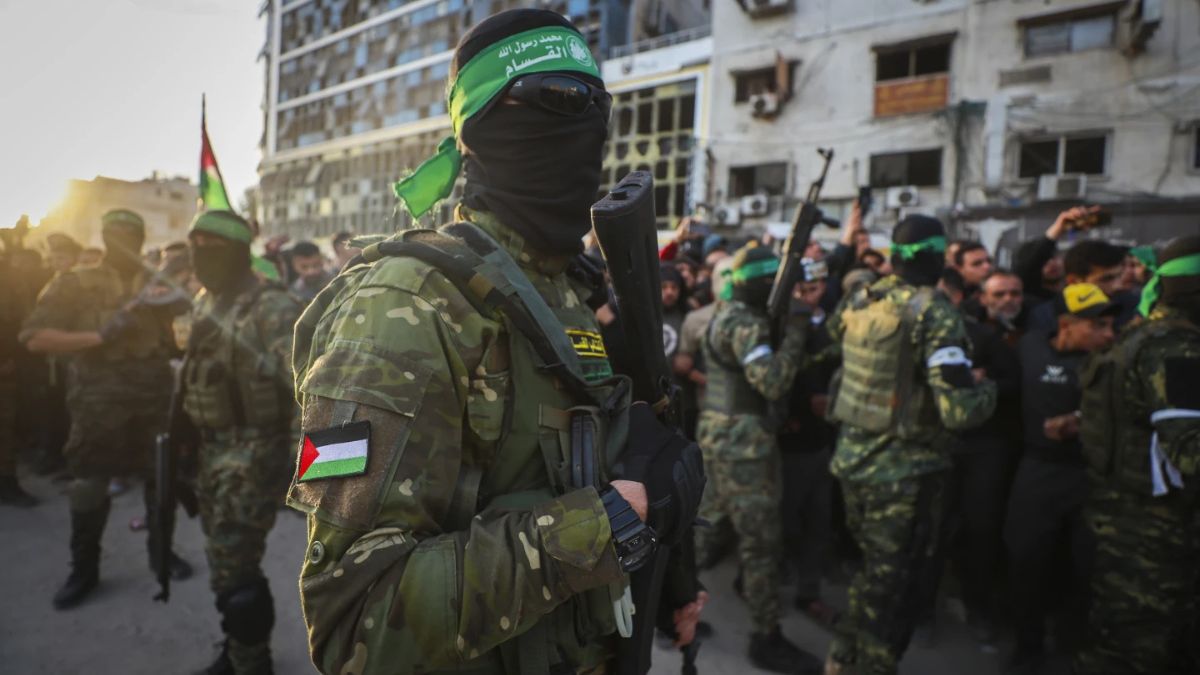Hamas attack on Gaza civilians soon? What US says about possible Trump Plan breach

The US says it has credible intelligence that Hamas is planning an attack on civilians in Gaza. The announcement, made yesterday, indicated that such an action would constitute a serious breach of the ceasefire agreement currently in place and could unravel the progress achieved through international mediation efforts.
The United States has informed guarantor nations of the Gaza peace agreement that a violation by Hamas may be imminent. According to the State Department, should Hamas proceed with any attack on civilians, measures would be taken to protect the people of Gaza and preserve the integrity of the ceasefire.
This warning follows multiple reports of Hamas engaging in violent acts against Palestinians accused of collaborating with Israel or supporting rival militias.
According to international sources, at least 33 people have been executed by Hamas in recent days, in what has been described as a campaign aimed at demonstrating power after the ceasefire came into effect. One Israeli hostage negotiator claimed that Hamas was continuing a long-standing pattern of punishing suspected collaborators and labelled the group a criminal organisation.
Israeli officials have previously indicated that rival gangs within Gaza, including those involved in smuggling and drug trafficking, had received weapons and funds from Israel in an attempt to destabilise Hamas' control of the territory.
Trump's shifting stance on Hamas
US President Donald Trump initially said Hamas had taken out only “very bad gangs”. However, after video footage emerged showing public executions carried out by the group, his stance hardened. He said if Hamas continued killing people in Gaza, the United States would have no choice but to intervene militarily.
Trump later made it clear that he was not planning to deploy American troops in Gaza.
He added that actors close to the region would take action under US guidance, if necessary. The sharp change in tone from the White House signals a more confrontational stance towards Hamas, in contrast to more ambivalent statements earlier.
A ceasefire under strain
Meanwhile, the ceasefire was tested by the deadliest incident involving Israeli troops in Gaza since the agreement took effect eight days ago.
According to Gaza’s civil defence services—which are operated under Hamas authority—11 members of the Abu Shaaban family were killed on October 18, when a bus they were travelling in was hit by an Israeli tank shell in the Zeitoun neighbourhood of Gaza City. The casualties included women and children, and the family was reportedly attempting to return, to inspect their home.
The Israeli military offered a different account of the incident. The IDF stated that a suspicious vehicle was observed crossing the yellow line, which marks the perimeter of areas in northern Gaza still under Israeli control, and was moving toward Israeli forces. According to the IDF, warning shots were fired first, and when the vehicle continued to approach in a manner perceived as a direct threat, Israeli troops responded with live fire in line with the ceasefire protocol.
The yellow line clearly remains a concern as Gazans struggle to identify the line’s exact location in the absence of physical markings and widespread internet shutdowns. Israeli Defence Minister Israel Katz has pledged to install visual indicators, but this has yet to materialise. Hamas has condemned the incident, accusing Israel of unjustified aggression.
Other complications
Israel, meanwhile, is yet to open the critical Rafah border crossing with Egypt, further complicating an already precarious ceasefire.
According to Prime Minister Benjamin Netanyahu, Rafah would remain shut until Hamas returned the bodies of all deceased hostages. While all 20 living hostages were freed by Hamas, only 12 of the deceased hostages’ bodies have been returned so far. Trump's peace plan calls for the return of the remains of all 28 deceased hostages.
Hamas, meanwhile, says the recovery is taking time because of the extensive destruction in Gaza and a lack of proper equipment. They claim that Israeli restrictions on the entry of heavy machinery have hindered their ability to locate and recover remains from the rubble.
Netanyahu’s decision to keep Rafah closed has drawn sharp criticism from Hamas, which described it as a violation of the ceasefire terms. It is already affecting humanitarian aid. Delivery levels remain far below what is needed to address the severe humanitarian crisis, hurting the prospects of lasting peace.
Middle East